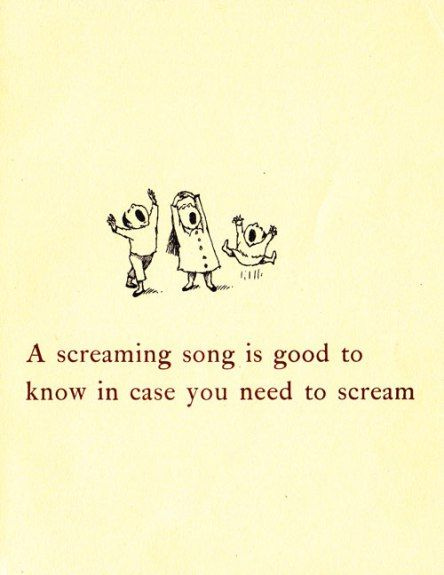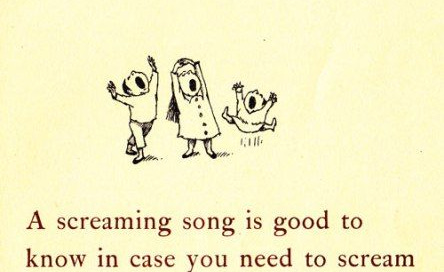I recently watched The Fallout, a Megan Park film about the emotional aftermath of high school shootings. In one scene, the lead character Vada (played by Jenna Ortega) sits with her father on a hilltop overlooking the ocean. “I feel so empty,” she says.
Her father reminds her that she experienced something most people don’t—most people shouldn’t—in their lifetime. Then he screams into the trees. “Try it. It feels good,” he says.
“I’m scared to go to school every day!” Vada shouts. “I’m scared to sleep!”
“I’m scared to send my kids to school!” her father stands up, screams out at the water. “I’m scared of time!”
The two of them stand there together on the hill and continue shouting, releasing their fears and feelings into oblivion.
*
In the past week, I’ve noticed myself carrying a lot of heavier emotions. I didn’t experience a direct trauma like the one in the film, but I have been feeling overwhelmed witnessing the war and trauma happening in the world. I imagine many of us resonate as we encounter grief and fear and rage once again, feelings that, unfortunately, have become all too familiar in recent years.
These feelings blur together, becoming something of a frequent passenger sitting on our chests. We notice the heaviness but pretend it isn’t there, pretend we aren’t struggling to breathe beneath its weight.
Perhaps it’s because we feel isolated in our experience despite knowing that, in actuality, we are far from alone—everyone experiences heavy emotions regularly, on both macro and micro levels. We feel angry about the world, terrified about the future. We’re also upset about the fight we had with our partner or grieving the loss of a personal dream.
The impossibly big feelings mix with the smaller, everyday ones. They swirl around in our bellies, slowly eating away at our insides. Yet we continue to push them down, to grit our teeth, to force out the expected “I’m fine.” Why can’t we offer ourselves relief instead and simply release all it is that we’re feeling?
Maybe it’s because we know that when we speak our feelings aloud, we’re actually giving them names, making it impossible to deny their existence any longer. When we acknowledge our emotions and create space for them to exist outside of ourselves, they are no longer secrets, and that can feel terrifying.
Maybe we also fear that if we free one feeling, we won’t be able to stop the subsequent unraveling—like bridled animals pawing at the ground, fighting to be released. Loosen the rope, even a little, and you lose control of everything.
Releasing our feelings looks a little bit like shuffling out of the shadows, like coming out from behind the large boulder we believe has been protecting us all this time. It’s exposing, shocking. We feel raw and naked. We’d just as soon pretend we’re okay than look ourselves in the mirror and confront all that complexity, all of the messiness.
*
In her essay collection Thin Places, Jordan Kisner writes, “If you are stuck somewhere small in your mind, somewhere unhappy or afraid or paralyzed or heartbroken, all of which are a kind of claustrophobic circling and circling, you might be able to reverse-engineer an expansion, shove yourself through into some larger mind place by putting yourself in the way of some vaster spaces in the world.”
Vaster spaces. I think back to the hills, to the screaming scene in The Fallout, and I wonder about the last time I gave myself permission to exhale the emotions. The world is a breathtaking and beautiful place. It’s also full of immense pain and suffering. These two truths coexist.

Feelings exist inside all of us, but we can’t hold them in forever. Emotions need to be let out, to be freed from our bodies. The heaviness has to move through.
And so we shout to the hills, we scream into the woods, we holler into the canyon. We run deep into the forest and turn our heads to the sky, using it as a sounding board.
“We’re not okay!” We yell with our entire being, just like in the scene from the movie. Vada and her father are alone on the hill, but they are also together. No one is around to hear them, but they hear each other, and they hear themselves.
This is how we survive, how we keep living. We admit our feelings, and we admit them aloud. We witness them. We hold space for them. We invite others to do the same. And then, together, we scream them into the woods.
Weekly Feels
This video of Germans welcoming and caring for Ukrainian refugees at the train station in Berlin
People around the world have been booking Airbnb rooms in Ukraine to help send money to hosts and families
“I am washing my face before bed while a country is on fire.” This poem by Mari Andrew
To feel joy: Karamo dancing
This song by Vancouver Sleep Clinic
A few last words:
In my last post, I announced that I had turned on paid subscriptions so that anyone who wants to support this substack monetarily can do so—thank you immensely to those of you who signed up. In the coming weeks, I will be brainstorming ways to add subscriber-only content to this newsletter for you. If there is something specific you would like to see, please let me know by responding to this email directly.
Also, ICYMI, I will be launching a new substack about ‘90s evangelical purity culture next month called blessed are the pure—more details to come soon! I’d love to invite you to subscribe or share with friends who you feel will resonate with the content. xx





The Fallout… the traumatic scene in that movie broke me down. When I see things like that in the news it’s always been sad, but that scene, the way those kids might experience it, had me gasp sobbing. One second I was watching the next falling apart. A great movie, but oh my goodness.
I'm half Russian half Ukrainian and finding it hard to put my messy feelings about this f***ed up war and hurt into words right now, so this really resonated with me. Thank you!